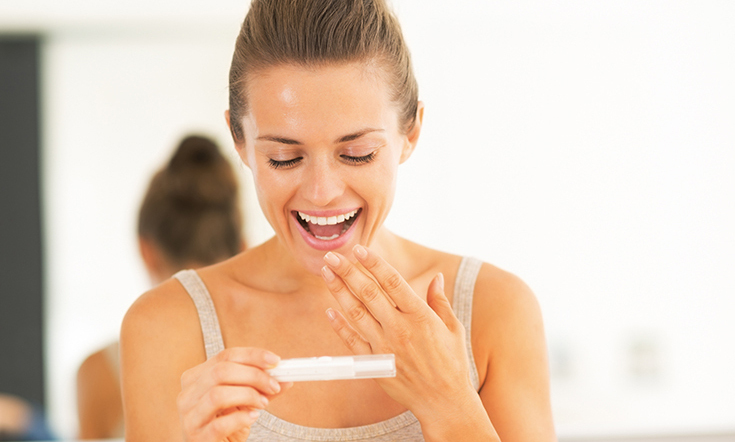

Most first-time pregnant women wonder what are the exact things to do after a positive pregnancy test. The experience is indescribable and can be very overwhelming when you see that pink plus sign or any indicators that shows a positive pregnancy test result.
Here is some important information to help you right after you discover that you are pregnant.
How To Tell If It’s A Positive Pregnancy Test Result?
A pregnancy test checks a woman’s urine or blood. The test detects the presence of a hormone called human chorionic gonadotropin (hCG). This hormone is made by the placenta and when human chorionic gonadotropin is present, it may indicate that a woman is pregnant.
A pregnancy test is different from ovulation/fertility test. A pregnancy test kit is associated with the detection of hCG or human chorionic gonadotropin (This hormone can be detected in the mother’s urine or blood before the woman’s missed period). HCG is first detectable in the blood as early as 7-8 days after ovulation by very sensitive HCG assays (research assays). In real life, blood pregnancy tests will be positive (> 2 mIU/ml) by 10-11 days after LH surge.
A pregnancy test becomes positive only after the fertilised ovum has first implanted into the uterus and then sent enough amounts of human chorionic gonadotropin (hCG), into your blood stream and into your urine.
What To Do After A Positive Pregnancy Test?
It is very helpful to maintain a healthy diet and lifestyle once you know that you are pregnant. Here are some tips to guide you on what to do after a positive pregnancy test for the safety of your baby.
- Cigarette smoking has been related to low birth weight, premature birth and other pregnancy problems. If you smoke, stop or quit immediately.
- Take regular exercise, or begin with less strenuous activities. This can be done by simple walking and swimming.
- If you drink alcohol, limit your intake or cease drinking during the whole pregnancy.
- Take prenatal vitamins such as iron and folic acid. You can get them over the counter or get a prescription from your doctor.
- Have a regular prenatal check up with your physician. The doctor can suggest any tests that are necessary for you and your baby’s health. He will also assist you in planning your care and delivery choices.
False Positive Pregnancy Test Results And What Causes Them?
Occasionally, positive pregnancy test results can be a “False positive” result. This can be disappointing and are not usual, but this may occur for the following reasons:
Chemical pregnancy – This term is used for very early pregnancy loss. About half of all pregnancies are thought to end in miscarriage, usually sooner after conception. You may experience it even without knowing that you are pregnant. If a pregnancy test is taken very early in which hormone levels is at its peak, you may detect a positive hCG response and then go on to have a period.
Not following instructions – Home pregnancy kits have different ways in telling you if it is invalid, negative or a positive result. The best thing to do that is the same to all pregnancy home kits is to read what is written in the pouch of the product and follow the instructions.
Fertility treatments – There are some fertility treatments that contain hCG hormone and may return a false positive pregnancy if the hormone is still present.
How Long After A Positive Ovulation Test Will You Wait To Have A Positive Pregnancy Test Result?
Once you have performed an ovulation test and reveal a positive result, you will need to have more sexual intercourse over the following days to increase the chances of conception. The best recommendation on when to take a pregnancy test and have an accurate result is to be patient for at least until the first day when your period normally begins or until you have missed your monthly menstrual period. Otherwise you may test too soon and receive an inaccurate result that makes you more frustrated.
To increase your chances, simply test for ovulation first and then as soon as you have a positive result, have an intercourse with your partner over the next several days. Try and forget all about becoming pregnant and just be patient. If you think your period did not arrive on your expected date then think about taking a pregnancy test. This may not be the greatest advice to hear, but it really is the best way to have an accurate result regarding pregnancy.
You can check our Am I Pregnant Quiz to support your positive pregnancy test result.






















